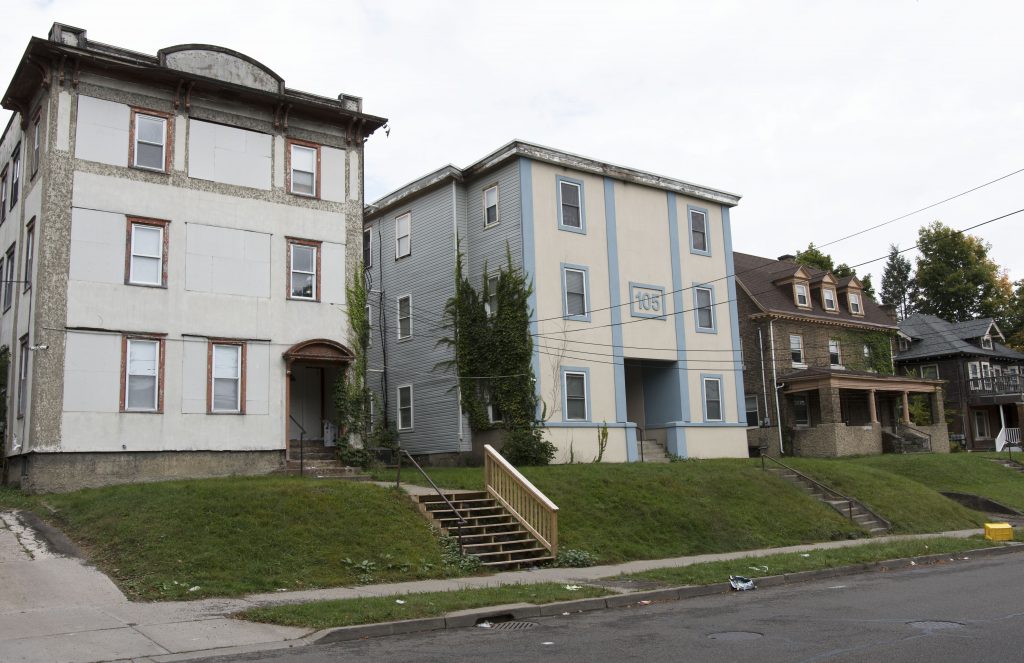In June, Gov. Andrew Cuomo signed the Housing Stability and Tenant Protection Act of 2019 into law, giving Binghamton and other New York tenants more power in rental agreements.
According to the New York Senate website, the law promises to give more rights to tenants through multiple protections, including preventing landlords from raising rent without communication and banning eviction out of retaliation. The changes may help students like Julianna Prato, a junior majoring in environmental studies, who said her worries as a tenant come from surprise monetary changes.
“I feel like I do have rights as a tenant, but to a certain extent,” Prato said. “I’m never really nervous that my rent will be raised but it can be stressful worrying about all the small little rules and charges that pop up every so often — but I’m just glad that I secured a place to live in time.”
The codes also aim to prevent landlords from blacklisting certain tenants, enabling tenants to stay in their evicted property in certain financial circumstances and limiting security deposits to a one-month maximum.
“Rent regulations were enacted in response to an ongoing housing shortage crisis, as evidenced by an extremely low vacancy rate,” the law states. “Under tight rental markets, tenants struggle to secure safe, affordable housing, and landlords have little incentive to keep tenants in place long term by offering consistently low rent increases.”
Landlords and building owners may be concerned about the shift in power, and several have voiced their opinion on the Senate website, writing that the law takes away the incentive to invest in properties and makes it easier for tenants to get out of paying rent. Steve Lysczek, owner of Distinctive Homes by S & D, LLC said the new rules could hurt tenants instead of help.
“Our business is more careful about who we rent to now,” Lysczek said. “This could affect people looking for a place to live. As often happens, when these new laws take affect it hurts the very people they are trying to help. So many people will not be able to find a home since owners can’t afford to take a chance on people that may have been a good tenant. In summary, laws should be written with fairness to both sides and people just need to have integrity and honor.”
Tenants who follow the rules, according to Christopher Pereira, a junior majoring in environmental studies, already have their rights secure, regardless of the new law.
“To be honest, I’ve never heard about that protection act before,” Pereira said. “I totally feel like I have rights as a tenant. Since I pay rent and keep the space I’m renting clean, I feel as if I am entitled to any property rights a homeowner obtains when renting.”
Lysczek added that the new law will only add more work during the eviction process.
“Luckily, we have not had to evict tenants for a year or so,” Lysczek said. “Therefore, I have not been affected yet. I’m sure when the time comes to go through another eviction, it will cost even more money in legal fees and paperwork.”



